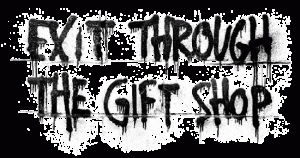I am so unbelievably glad that we’re finally looking at We Feel Fine in this class, because it has been bugging me since Sample introduced it in my ENGL 325 recitation 2 years ago. Like everyone else, my first reaction to the website–text?–story?–was “wow, this is really cool,” but the more I thought about it, the more I kept coming back to that age-old question that professors continually drill into your head: “why does any of this matter?” I’ll admit that my first idea for this blogpost was to analyze Whale Hunt, just because it presents a more traditional narrative (i.e. it has a beginning and an ending, with a definite story in between). Looking at We Feel Fine for an English class made me want it to tell a story, but I just couldn’t wrap my head around that, which led to my frustration.
Lev Manovich’s article The Database quelled many of my confusions. In one particular quote from page 228, Manovich directly addresses the root of my discomforts:
“…if the user simply accesses different elements, one after another, in a usually random order, there is no reason to assume that these elements will form a narrative at all. Indeed, why should an arbitrary sequence of database records, constructed by the user, result in “a series of connected events caused or expanded by actors”?
But hold on a minute. As an English major, I’ve been hard-wired to find narratives in everything. Even Manovich’s insistence that “not all cultural objects are narratives” seemed problematic to me. Doesn’t everything have a story? As a human, processing data and observing your surroundings, aren’t you registering a particular narrative (albeit a subjective one) to make sense of the world? Even if I concede to Manovich’s suggestion that not everything is a narrative, certainly everything fits in to a narrative, to some capacity…right?
I’m both excited and hesitant (in the way that those two often go hand-in-hand) to unlearn the process of “narrative-izing” texts, documents, and databases. Clearly, my frustration upon seeing We Feel Fine in an English colloquium was that I was unable to discern why a student of English literature could be concerned with anti-narratives. However, to the extent that databases do present a way of understanding and experiencing the world, in the same way that novels and films do, they illicit my curiosity and interest.
However, as I explored the We Feel Fine website, reveling in its randomness, I came across another troubling feature that only compounded my confusion: We Feel Fine, the book. After going through so much trouble to accept that We Feel Fine isn’t supposed to be read like a book, I find out that the creators of the database have now cataloged their data into the most traditional narrative medium that exists. While I understand that the book version is an altogether different project than the website database, how is it possibly interesting without the database interface?
In The Database Manovich insists that one of the characteristic features of a database, and the internet at large, is that it can always be edited, added to, rearranged–it is never complete. We Feel Fine fits nicely into this mold, maybe more-so than Whale Hunt which presumably is a completed database with no room for editing, additions or deletions. We Feel Fine, the Book no longer has access to the stream of incoming data (via the internet) necessary to make it an interesting project. I’d be interested in looking at the book to see what data the authors felt was important enough to include–and this also violates Manovich’s assertion in the very first paragraph of the article that database logic treats every piece of data equally (“they are a collection of individual items, with every item possessing the same significance as any other.”) We Feel Fine the Website doesn’t discriminate against incoming data–everything is received, organized, and stored, and can be accessed through any of the site’s multiple viewing interfaces (madness, murmers, montage, or any combination of the three).
Manovich would argue that the way We Feel Fine is organized indicates the way humans perceive cultural artifacts in the age of new media. As we become a more and more web-based society, the ability to archive and organize data based on its most important and relevant characteristics has become probably the primary way we perceive our existence. For example, I’ll go ahead and assume that everyone in our class is active on either Facebook, Twitter, tumblr, or flickr, all of which can be considered databases. As our world–and ourselves–become more and more ‘databased,’ it is critical to understand how this medium functions and also how it can be criticized from an artistic or rhetorical standpoint.
To see the online version of the We Feel Fine book, click here.
